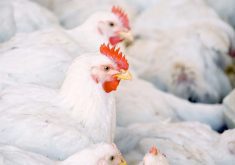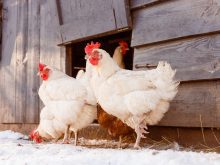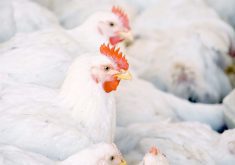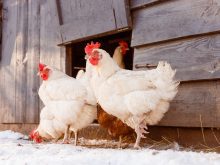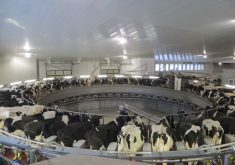With avian influenza in two bordering jurisdictions, Manitoba turkey producers are on high alert.
“We are very concerned because the outbreaks are just south of the Manitoba border, the bulk of them in Minnesota,” said Bill Uruski, chair of the Manitoba Turkey Producers. “We’ve tried to alert producers and so far everybody seems to be doing their part in heightening their biosecurity and their barn entrances and the like.”
Heightened biosecurity has been a focus for the poultry industry this year as a highly pathogenic avian influenza has spread across the United States and into Canada. Since first appearing in B.C. late last year, the H5N2 strain of the virus, noted for quickly killing large flocks, has resulted in the destruction of millions of birds in the United States after appearing in more than a dozen states.
Read Also
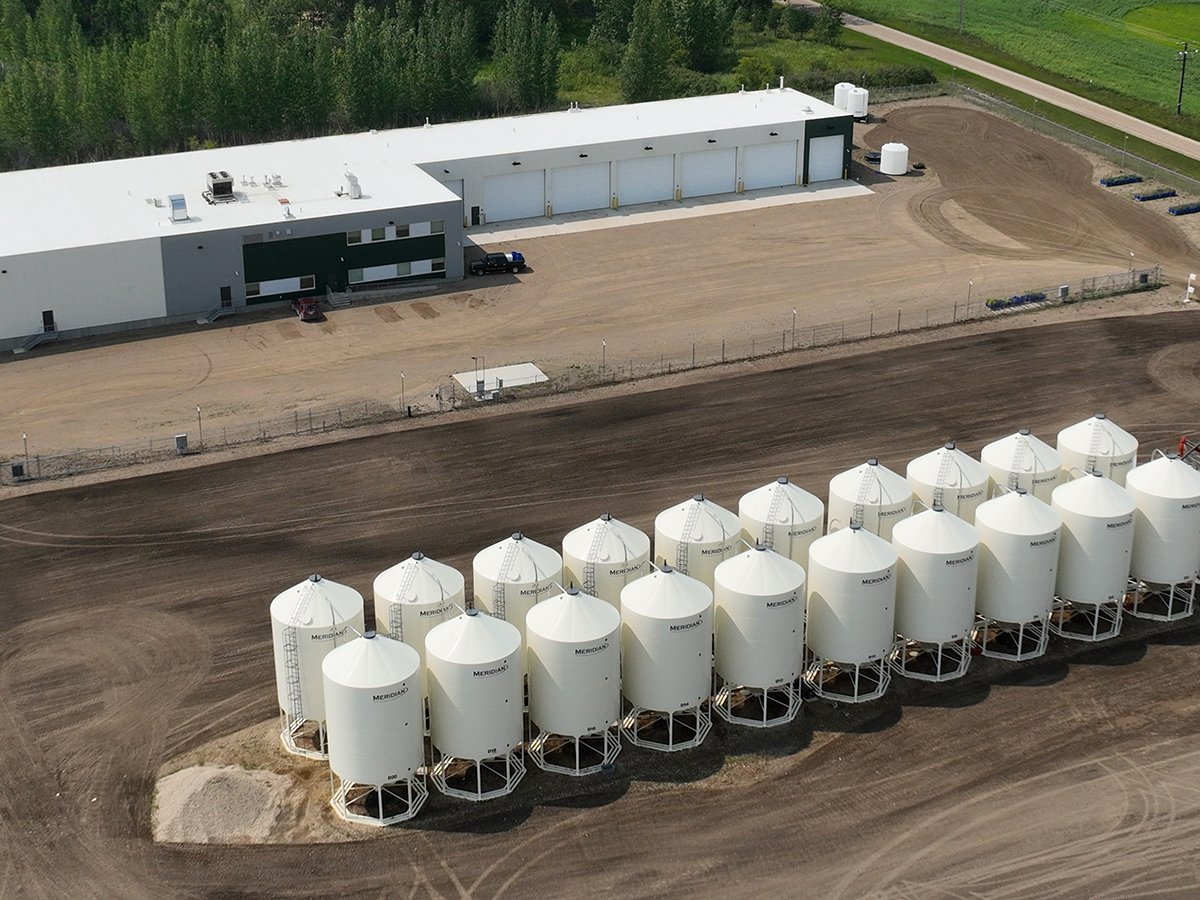
Saskatchewan firm aims to fix soil with compost pellets
In his business, Humaterra, Leon Pratchler is helping farmers maximize yields in the weakest areas of their fields through the use of a compost pellet.
Last week, Minnesota declared a state of emergency related to the outbreak, a measure that’s also been taken by Wisconsin.
Last week, in a single day, U.S. officials confirmed 13 new avian influenza cases in turkey flocks. Wisconsin has seen more than 40 cases on poultry farms, affecting more than 2.5 million birds.
Near the South Dakota and Minnesota borders, 3.8 million birds were quarantined for destruction at Sunrise Farms near Harris, Iowa, said the egg farm in a statement. That number represents about six percent of the egg-laying hens in Iowa and more than one percent of the U.S. flock. About one in five eggs in the U.S. is produced in Iowa.
As of press time, Canada has seen just two cases of avian influenza in 2015, both in Ontario. Last week, the Canadian Food Inspection Agency established control zones restricting movement of animals and poultry products around the site of the most recent case, affecting Oxford and Waterloo counties in Ontario. The measure is intended to prevent the spread of the disease and ease export restrictions placed on Canada by other countries.
Control zones established in Ontario and northern U.S. states have created logistical challenges for some poultry producers. Western Canadian chicken producers that rely on the U.S. for hatching eggs and some live animals, for example, have had to reroute shipments.
Turkey producers in Manitoba that ship live animals to a plant in Minnesota have also been affected as they take on added costs for biosecurity and cleaning vehicles, said Uruski, although the border remains open to exports.
A large turkey hatchery in Manitoba also ships day-old birds into the U.S. As a part of that operation’s biosecurity plan, drivers will not enter any barn, he said.
“There’s no doubt that they’ve actually lost business because of the outbreaks,” said Uruski. “I’m certain that some of those who have had outbreaks were customers of theirs or they would be through another hatchery.”
Contact dan.yates@producer.com



